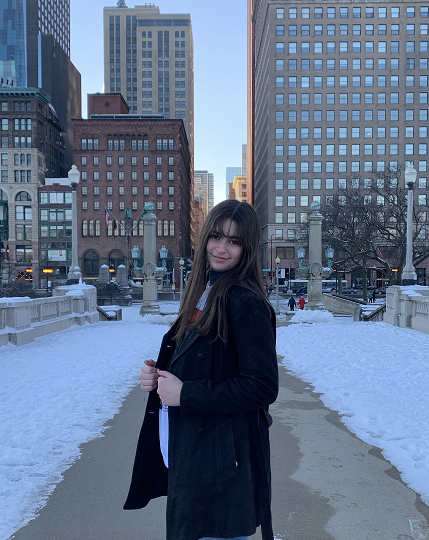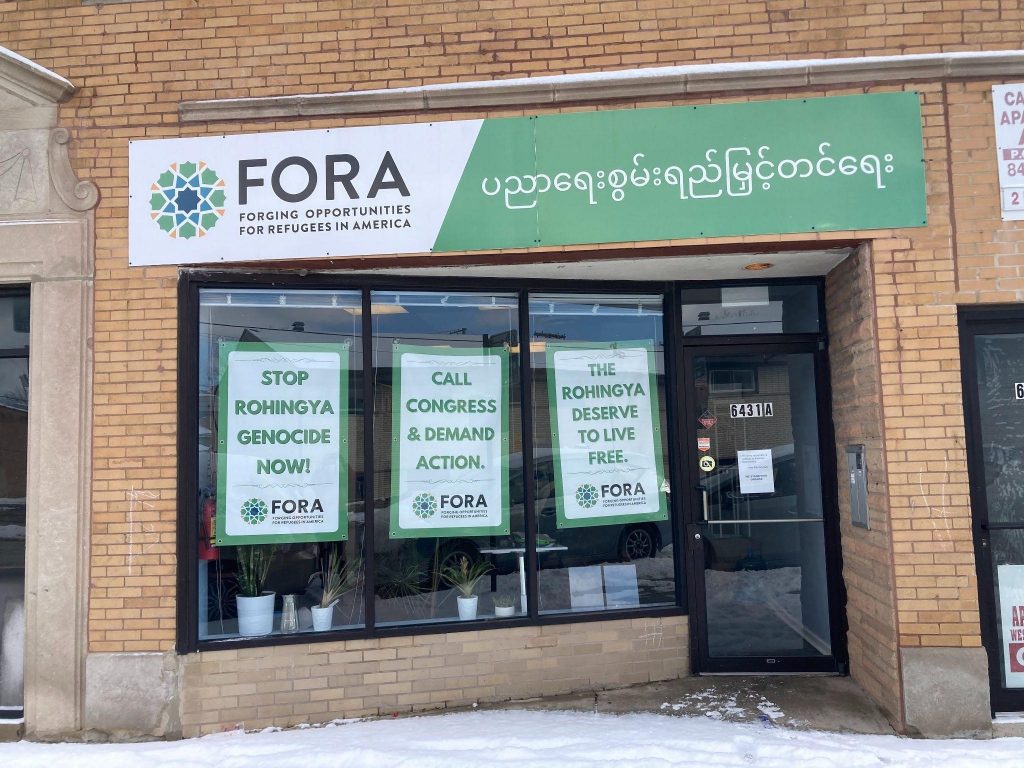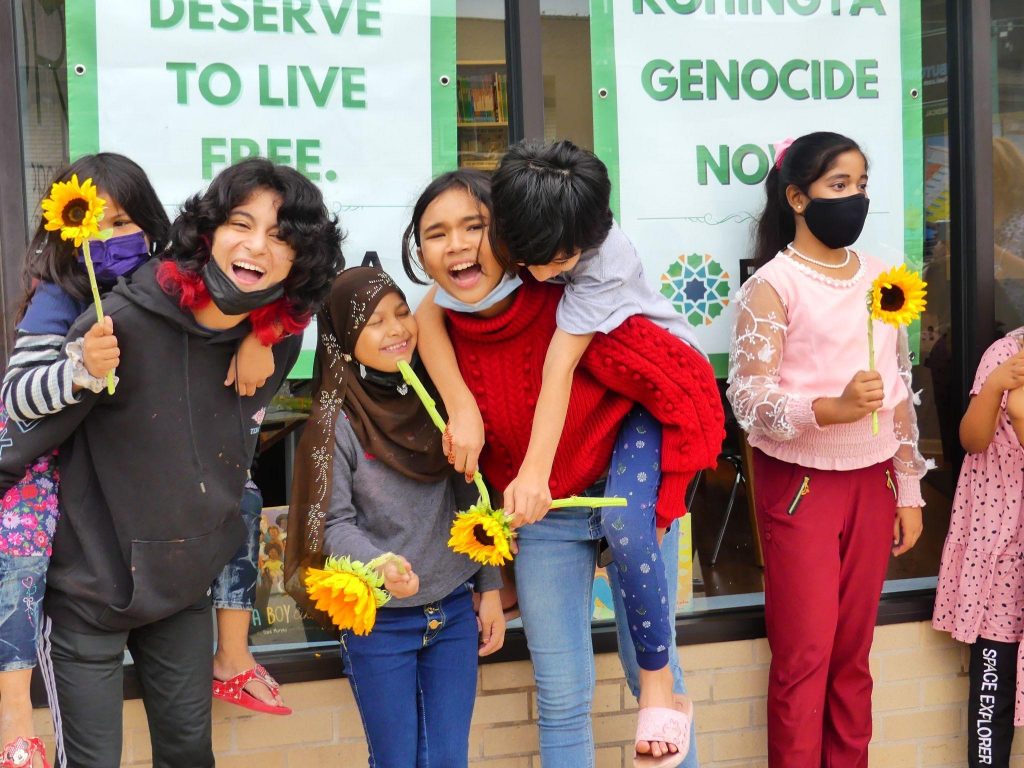Hi, My name is Giulianna Larson! I am a sophomore majoring in Journalism with minors in Spanish, Arabic, and political science. For the past year, I have been working with an organization called Forging Opportunities for Refugees in America (FORA). Serving refugee families from countries such as Myanmar, Syria, Afghanistan, South Sudan, and Eritrea, FORA provides the essential English literacy skills refugees need to be successful in the American education system. FORA was established in 2019 in response to the Rohingya refugee crisis and aims to empower refugee families through literacy. A short bus ride from campus, FORA is located at 6431 N. California Ave in the West Ridge neighborhood.
Many of the students identify as Muslim and speak multiple languages, such as Arabic. My studies in Arabic Language and Culture have strengthened my understanding of the Muslim and Arab world, allowing me to aptly support the students in both their studies and religious practices. When settling in the U.S, a country where Islam is not the dominate religion, students were forced to adapt to a schedule that does not include time for daily prayers and to a meal program that is not always Halaal (dietary needs per Islamic rules).
Whereas some public school systems force students to suppress their identities, FORA fosters the students’ religious and cultural identities, allowing students to express themselves and learn more about their home culture(s). FORA not only has a designated prayer room, sajaadas (prayer mats), resources for wudu (ablution for prayers), but also numerous texts about the Arab and Islamic world. The students do not feel ashamed of their identity, but rather curious of their culture and other cultures around them.
My intellectual exploration of the Arab world fosters my awareness of the diverse and rich Muslim culture(s), allowing me to better support those students, humanely and equitably. Students do not hesitate to ask to be excused when it is time to pray! They trust that I will not pass judgements on them because of their clothing or the mehndi/Henna on their skin, or any linguistic and cultural variations. To me, it is crucial for the students to feel secure when they are at FORA. I am grateful to serve as their support system not only to enhance their English literacy, but also to empower them to be confident in their identity and provide a safe welcoming responsive literacy zone for them.




